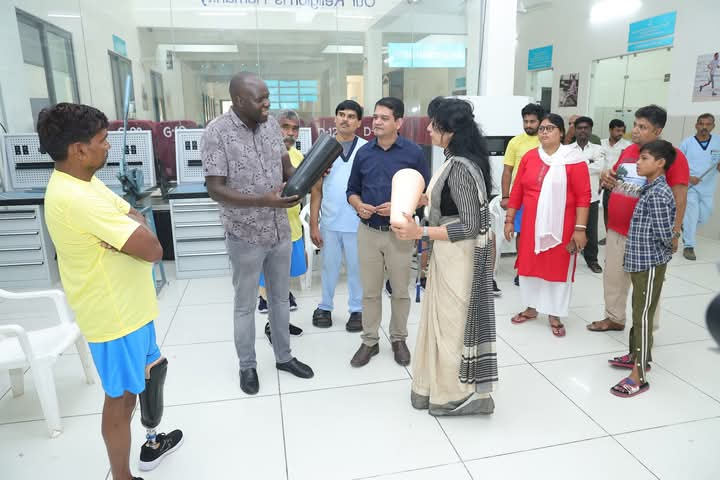Kenya Gearing Up for Low-Cost Prosthetic Technologies

Nairobi, Kenya – In a promising move toward affordable and accessible mobility solutions, Kenya is preparing to embrace low-cost prosthetic technologies through specialized training initiatives targeting orthopedic technologists. These trainings, set to roll out in the coming months, will focus on practical, cost-effective prosthetic systems such as Instalimb, Monolimb, and Alivio, among others.
Spearheaded by various international assistive technology partners, the initiative will be delivered in collaboration with the National Association of Orthopedic Technologists – Kenya (NAOT-K) and the Kenya Medical Training College (KMTC). The trainings are specifically designed for in-service orthopedic professionals, ensuring that existing practitioners can upgrade their skills and offer more inclusive services to patients across the country.

“These technologies are not only affordable but also simpler to fabricate—making them ideal for the Kenyan context where access, cost, and wait times remain significant challenges,” said the Chairman, NAOT-Kenya.
Bridging the Prosthetic Access Gap
Despite advancements in prosthetic technology globally, many persons with limb loss in Kenya continue to face significant barriers to accessing appropriate devices.
Among the core challenges are:
-
High cost of traditional prosthetics, often out of reach for uninsured or low-income clients
-
Lack of trained personnel in newer, adaptable technologies
-
Geographical disparities in access to orthopedic and rehabilitation services
Introducing low-cost, easy-to-fabricate solutions will empower professionals to produce functional, affordable prosthetic limbs more efficiently. Technologies like Instalimb, which leverages 3D printing, and Monolimb systems, known for their lightweight and modular design, offer a viable solution to the pressing prosthetic needs in underserved areas.

A Strategic Rollout Through NAOT-K and KMTC
The structured trainings will be facilitated jointly by NAOT-Kenya and KMTC, ensuring quality assurance and alignment with national health priorities. Professionals who complete the program will be expected to apply these techniques in both government and private facilities, significantly expanding the availability of cost-effective prosthetics in the country.
Interested participants are encouraged to liaise with the NAOT-Kenya office through the Office of the Chairman for more information on enrollment and training schedules.
As Kenya pushes toward inclusive, affordable, and locally adaptable healthcare solutions, the adoption of low-cost prosthetic technologies marks a crucial step. With the right training and partnerships, the country will be to reduce the mobility gap for thousands living with limb loss—restoring not just movement, but dignity and independence.




Comments